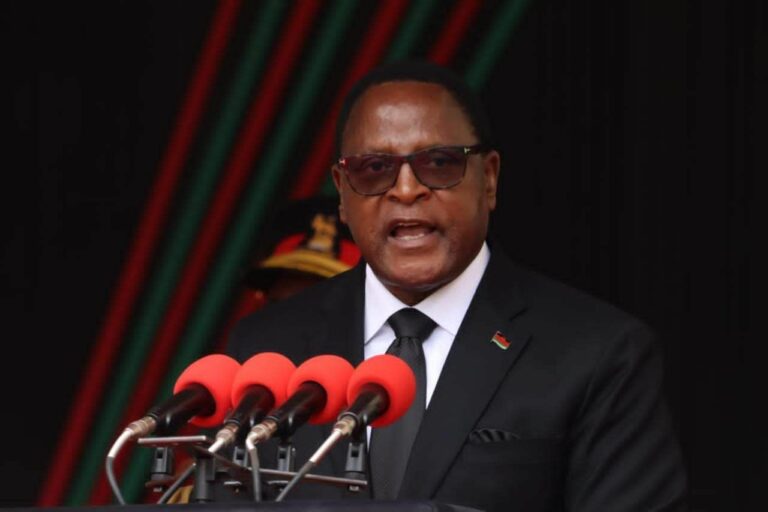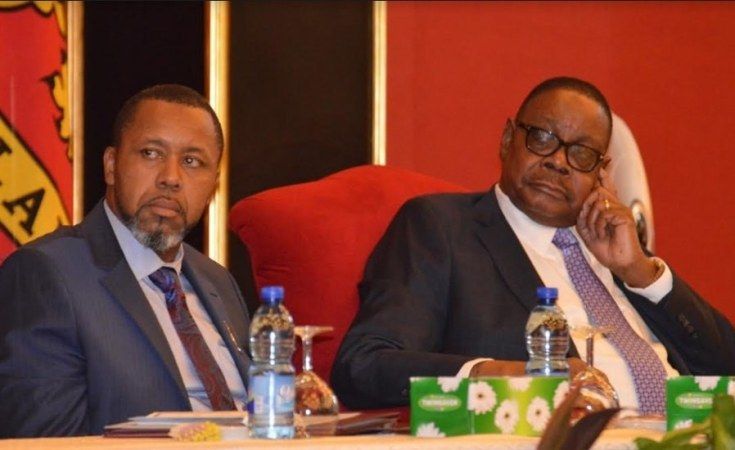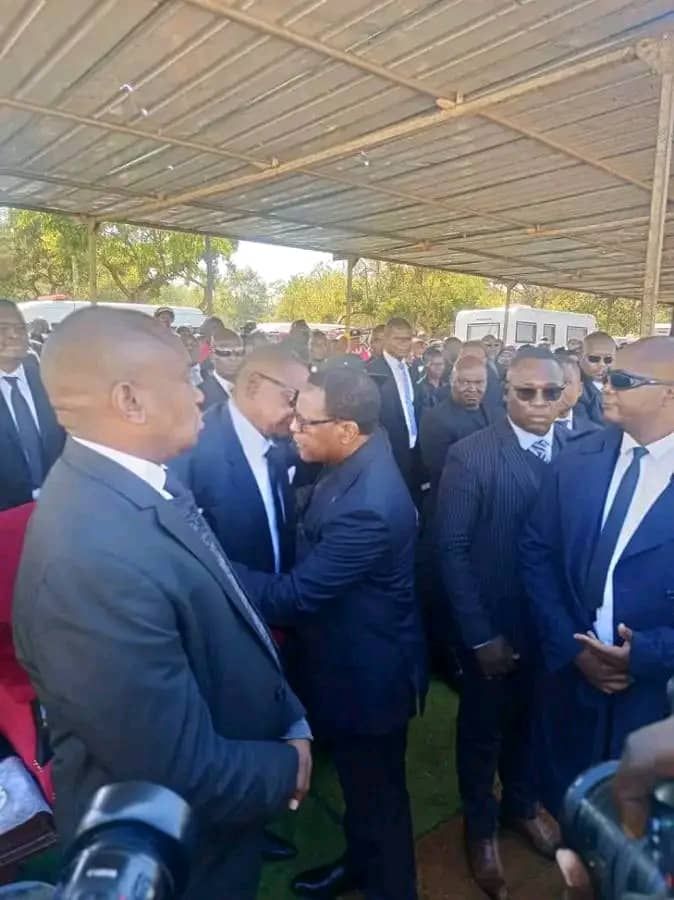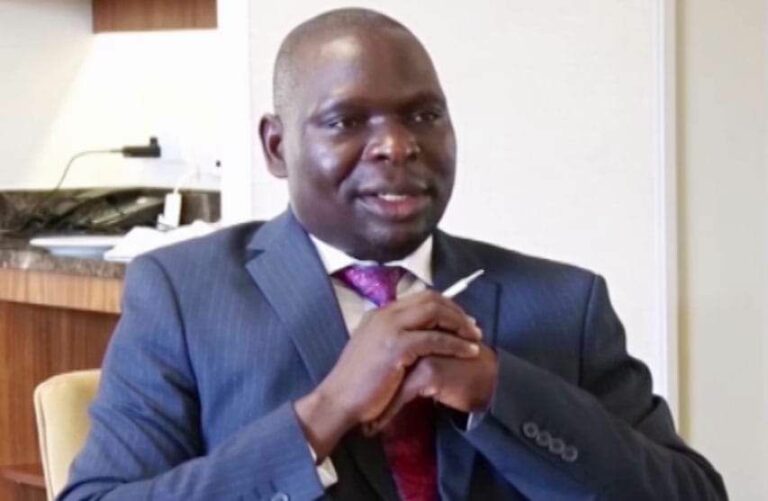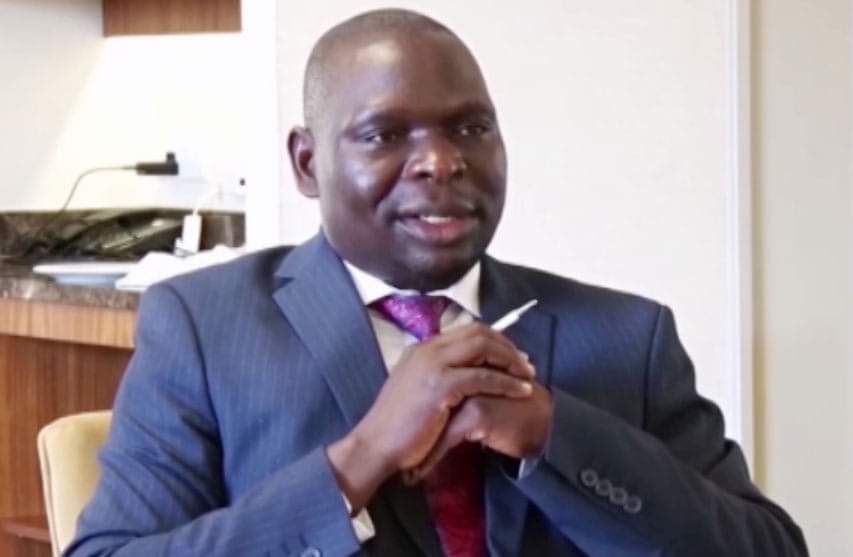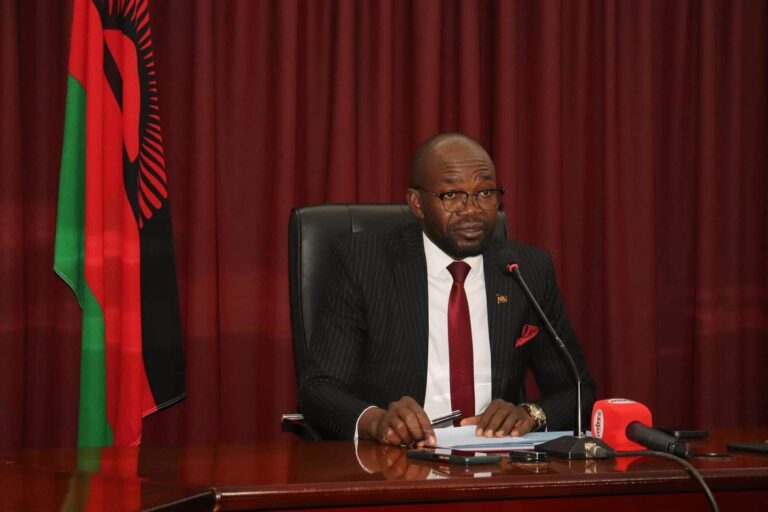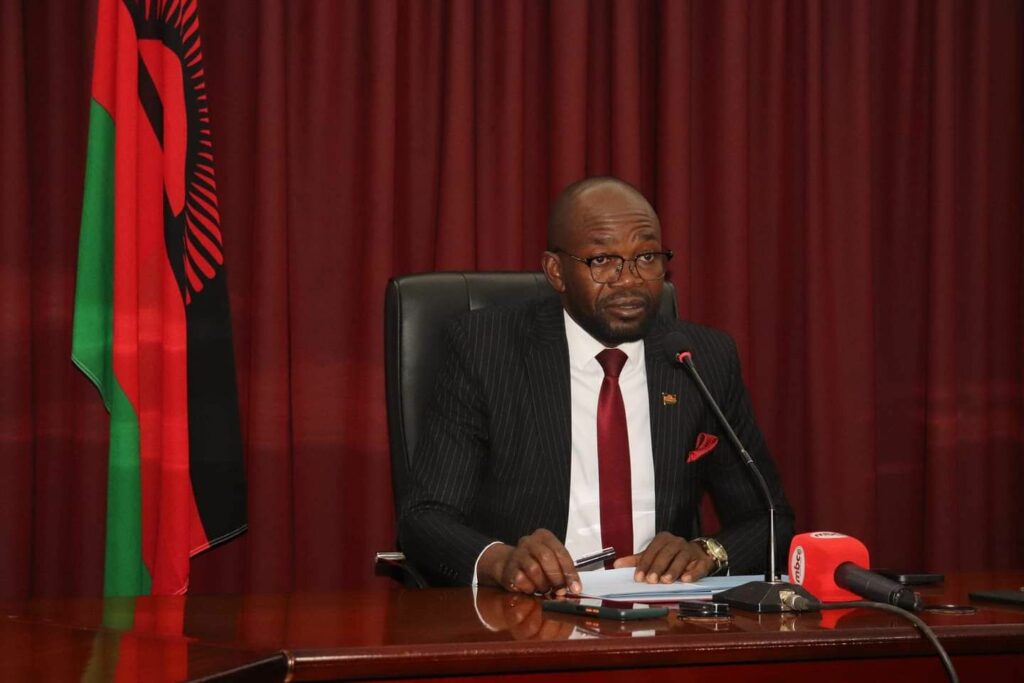As Malawi was enshrouded in profound sorrow, preparing to bid a dignified and heartfelt farewell to its Vice President, Dr. Saulos Klaus Chilima, at his ancestral home in Nsipe, Ntcheu, a dark and shameless plot was being hatched by certain members of the Democratic Progressive Party (DPP) in the same district.
The stoning of the motorcade carrying the late Chilimas remains, which led to the death of four innocent people including a pregnant woman, could have been avoided if such selfish individuals had respected cultural morals.
In our culture and tradition, we hold the utmost respect for the dead and to imagine that someone could organize hooligans to stone the remains of the Vice President, injuring people and damaging vehicles, is unheard of.
As the convoy transporting the body arrived at Tsangano, it was reported that a driver, not part of the convoy, ran over four people while fleeing from stones pelted by a mob.
The mob was apparently angered because their demand to view Chilimas body had been turned down. Two victims were killed instantly, and the other two died while receiving treatment.
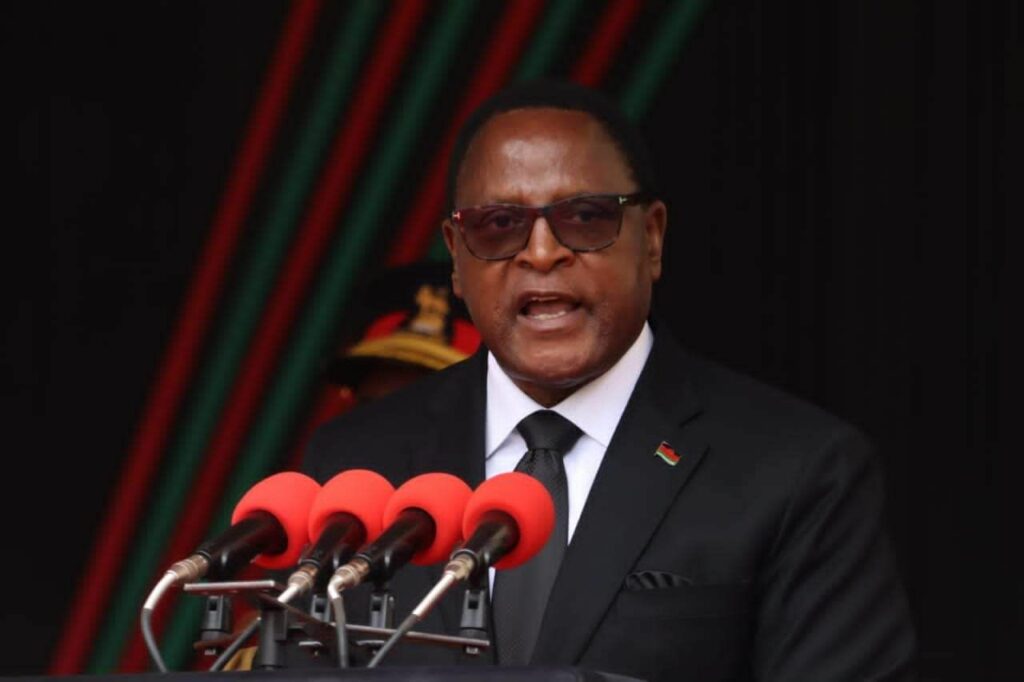
This behaviour is a gross violation of our cultural norms and a disgrace to our nation. What did the DPP gain from cheering the mention of Arthur Peter Mutharika while the Chilima family and other well-meaning Malawians were mourning?
During the funeral service, it became apparent that supporters of the United Transformation Movement (UTM), the party which the fallen Vice President founded, were peaceful.
However, it was the members of the DPP who behaved wildly and without any respect, as if they were more aggrieved than the rest of Malawians, despite calls from various sectors of society including traditional and religious leaders to maintain peace.
This incident highlights a shameful chapter in our political history, where partisan interests overshadowed the solemnity of a national tragedy.
The DPP’s actions during this somber occasion were not only disrespectful but also dangerous, leading to unnecessary loss of life and adding to the grief of an already mourning nation.
Such behavior should be condemned in the strongest terms, and those responsible should be held accountable for their actions. It is a sad day when political animosity overrides our shared humanity and respect for the deceased.
The DPP members involved have disgraced themselves, their leaders and their party, and their actions are a stark reminder of the need for civility and respect in our political discourse.
However, it is not surprising because violence is in the DNA of the DPP. The acts of Sunday evening and the entire funeral period remind Malawians of the many lives that have been lost without mercy at the hands of the DPP.
One is reminded of the death of Robert Chasowa, a polytechnic engineering student who was murdered in cold blood on his college campus, as well as Issa Njaunju, the Anti-Corruption Bureau administrator who was found killed, with his official car burnt.
At least 21 people were shot dead by police during the two days of protests against President Bingu wa Mutharika in July 2011. This is why the conduct of DPP-sponsored people at Tsangano and during the funeral service at Nsipe was not in any way a surprise.
Vice President Chilima and nine other officials died in a plane crash on June 10, 2024. The crash occurred in Chikangawa Forest due to bad weather conditions but President Lazarus Chakwera has promised a comprehensive investigation into the accident.
The plane was a military aircraft, and its crash has left the nation in deep mourning. President Lazarus Chakwera praised Chilima for his patriotism and his service to Malawi.


